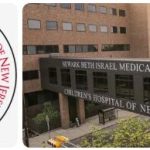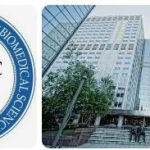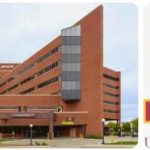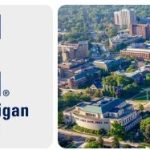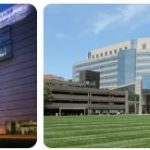Dartmouth Medical School (DMS) was founded in 1797 as the fourth medical school in the United States. Located in Hanover, New Hampshire, the school was established to meet the growing demand for trained physicians in the area. The first classes began with just six students and one professor. Since then, DMS has grown to become one of the leading medical schools in America. Over its more than 200-year history, Dartmouth Medical School has educated some of the most influential medical professionals and researchers in the world. Notable alumni include Nobel Prize Winners Drs. Joseph Murray and Robert Furchgott, who both received their MDs from DMS. In addition to its academic excellence, DMS is also known for its commitment to community service and outreach programs such as Health Outreach Program (HOP), which provides free health care services to underserved communities throughout New England. The school has also been at the forefront of research into cutting-edge treatments and technologies, such as stem cell research and regenerative medicine. Today, Dartmouth Medical School continues to be a leader in medical education, research, and patient care as it strives for excellence through innovation and collaboration with other institutions around the world.
Dartmouth Medical School, abbreviated as DMS, is one of the top-ranked U.S. medical schools located in Hanover, NH. Keep reading to see admissions application information including average GRE scores, admissions selection factors and dual degree programs of Dartmouth Medical School.
3 Rope Ferry Road
Hanover, NH 03755-1404
(603) 650-1505
Admissions E-mail: dms.admissions@dartmouth.edu
Web site: http://www.dartmouth.edu/dms
Electronic application: http://dms.dartmouth.edu/admissions/instructions
Fall 2008 Admissions Information
AMCAS application accepted? Yes
Earliest application date: 06/01
Application deadline: 11/01
Oldest MCAT considered: 2005
Application fee: $75
Director of admissions: Andrew G. Welch
Does this school ask for a secondary application as part of the admissions process? Yes
This school requires undergraduate work in these subjects in order to apply: biology, organic chemistry, physics, calculus, general chemistry
Is a personal interview required for admission? Yes
Are interviews conducted at the medical school? Yes
Acceptance notice to regular application for the 2007-2008 first-year class:
-Earliest date: October 15
-Latest date: August 30
Applicant’s response to acceptance offer for the 2007-2008 first-year class:
-Maximum time in weeks: 2 weeks
-Does the school consider requests for deferred entrance? Yes
-Deposit to hold place in class: None
-Deposit due: N/A
-Deposit refundable prior to: N/A
-Starting month for the class of 2007-2008: August
Early Decision Plan application period for the 2007-2008 first-year class:
-Does the school have an Early Decision Plan (EDP)? No
-EDP application period begins: N/A
-EDP application period ends: N/A
-EDP applicants notified by: N/A
Fall 2005 Admissions Statistics
The admissions statistics of Dartmouth Medical School are highly competitive, with an average GPA of 3.9 for accepted students. The school has a 7% acceptance rate and a median MCAT score of 517. The school is committed to recruiting a diverse student body, with over one-third of accepted students coming from underrepresented backgrounds. In addition, the school has an impressive track record for placing students in top residency programs throughout the country. The average time to complete a medical degree at Dartmouth is four years, and graduates have a 98% success rate in passing their board exams on the first try. Furthermore, Dartmouth Medical School offers a wide range of clinical experiences and research opportunities to its students that prepare them for their future careers in medicine.
| Applied | Interviewed | Accepted | Enrolled | |
| Total: | 3,726 | 673 | 259 | 82 |
| In-state: | 67 | 29 | 12 | 6 |
| Out-of-state: | 3,659 | 644 | 247 | 76 |
| Women: | 1,781 | 337 | 128 | 36 |
| Minorities: | 1,167 | 172 | 82 | 23 |
| International: | N/A | N/A | N/A | N/A |
Acceptance rate: 7.0%
GPA
Average undergraduate GPA: 3.7
MCAT
Overall score (composite): 10.7
Verbal reasoning: 10.2
Physical sciences: 10.8
Biological: 11.0
Writing: P
Undergraduate Majors
Biological sciences (biology, microbiology, zoology, etc.): 31%
Physical sciences (biochemistry, chemistry, engineering, etc.): 24%
Non-sciences (sociology, economics, English, etc.): 22%
Other health professions (nursing, pharmacy, etc.): 2%
Mixed disciplines and other: 21%
|
Combined Degree Programs
Combined degree programs offered: M.D./Ph.D., M.D./M.B.A., M.D./M.P.H.
Does the school have a combined college/M.D. program? No
Number of years to complete combined college/M.D. program: N/A
Web site for combined college/M.D. program: N/A
Selection Factors
Details on the policies, preferences, criteria, factors and procedures used in the M.D. admission process:
(Data appear as originally submitted by this school)
One year (8 semester hours) each of general chemistry, organic chemistry, biology, and physics is required. A half-year of calculus is required. A semester of biochemistry is encouraged, but not required. Equivalent of at least three years college work at an American or Canadian college or university required. Submission of MCAT scores recommended. Facility in written and spoken English expected.


